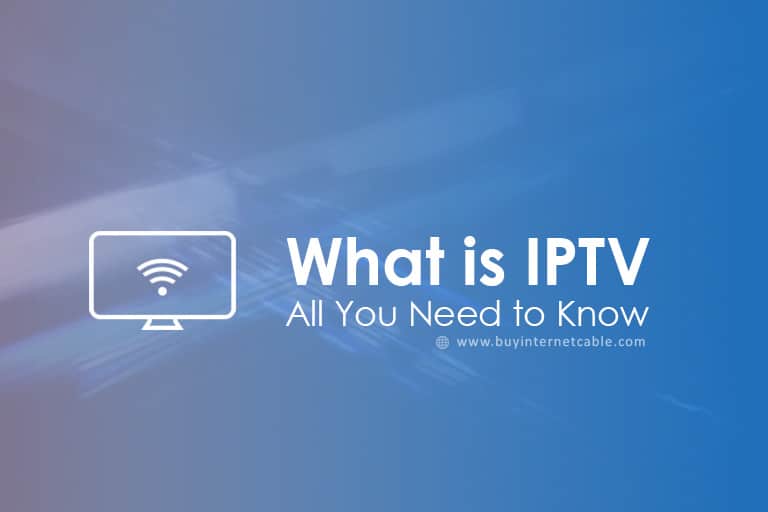
What is IPTV?
IPTV is a newly created computer protocol that is expected to replace conventional television transmission protocols over time. It raises some questions. What is IPTV? What are its characteristics? What are the advantages of using the IPTV protocol? Discover in the rest of this article the answers to these various questions.
What does IPTV mean?
IPTV stands for Internet Protocol TeleVision. As the name suggests, it is a method of transmitting television that uses the Internet to function (via IP which stands for Internet Protocol). To better understand this concept, which is relatively new to many people, it is helpful to learn more about traditional transmission protocols (that is not using IPTV).
Generally, television channels use satellite or terrestrial transmission systems to broadcast programs. Thus, each subscriber with a TV, an antenna and a decoder can receive the signal at home via the satellite or microwave network.
However, the classic process has a major shortcoming: it is not possible for the viewer to control what he is watching. The channels predefine daily programs to which all subscribers must refer if they want to follow programs. With well-defined schedules (and therefore by definition not flexible). IPTV on the other hand is totally different. In addition to using the Internet to function, it also offers the user the option of choosing their programs. In other words, the viewer can follow what they want, when they want.
Note: Be careful not to summarize IPTV only as streaming platforms or online multimedia content distribution (YouTube, Netflix, etc.).
How does IPTV work?
As briefly mentioned above, the working principle of IPTV is: make television available on demand. Thus, analogously to what happens during an Internet search (Google search for example), the viewer requests a program that he wants to follow and the corresponding signal is sent to him. Since data traffic takes place via the Internet, the user no longer needs a satellite dish or any antenna to receive broadcasts, just from an Internet Service Provider (an ISP), and an internet connection.
Note: that IPTV does not prevent the use of a satellite television signal receiver (satellite dish). If you wish, you can even use them together (together or alternatively). What you just need to know is that these are two completely independent concepts.
How do operators broadcast programs using IPTV?
Deploying an IPTV protocol is very complex. First of all, it requires a very advanced storage base. It is in fact thanks to this that the operator will store all the multimedia content that it makes available to its subscribers. There are mainly two types, namely:
- Centralized storage servers (practical for small local operators);
- Decentralized storage servers (for large-scale operators).
- Once the multimedia content is placed on the storage servers, the operator sets up an encryption algorithm. It must also ensure that every viewer can have the best possible video quality. As for the broadcasts themselves, they are carried out as streaming (ad-free) on demand with very high transmission speeds.
- Web browsers:
- digital television: TV smarts:
- The IPTV box
- Internet browsing.
- Recording of favorite shows to follow them later.
- Internet radio.
- Reading various removable disks (USB key, hard disk, etc.)
- VOD:
- Catch-up television or time-shifted media
- Live IPTV
- IPTV is very simple and easy to configure, it also does not require any cable installation: specific socket;
- IPTV allows the viewer to have complete control over what they watch;
- Thanks to IPTV, it is possible to pause a program, skip backwards or even forwards;
- IPTV works on many platforms;
- The price / quality ratio of IPTV is very advantageous.
- The legal problems inherent in its use;
- Transmission bugs linked to the overload of central servers;
- The inability to watch TV programs without a high-speed Internet connection;
- Slow loading (direct consequence of a poor Internet connection);
- The poor signal quality sometimes.

